Living with E-waste
Collection of ethnographic, qualitative and empirical field research conducted at a political and violence inflicted informal electronic waste recycling site in Mexico city to understand the perspective of the dismantlers.
Mexico City
1. Empirical Research
Immersive Field
Context:
Colonia Renovación is an informal (politically illegal) waste management site which is highly monitored by a local mafia. It is infected by violence and influenced by politics which makes it inaccessible to the outsiders and therefore cease to exist as a disdained reality.
Colonia Renovación is an informal (politically illegal) waste management site which is highly monitored by a local mafia. It is infected by violence and influenced by politics which makes it inaccessible to the outsiders and therefore cease to exist as a disdained reality.

Note: An outsider is anyone who would look surprised, pay too much attention, racially unambiguous and financially elevated. In order to see the insider perspective, I had to use the persona of an insider and at the same time avoiding too much interaction with people to protect mine and their identity.
Challenge:
How to ethically research in a life risky dangerous areas? How to conduct empirical research without collecting analog or digital data? How to deploy yourself as the documentation tool and later how to communicate those observation?
Approach:
Memory Drawings
![]()
![]()
![]()
![]()
Memory Drawings




Inspired by Incendiary Traces by Hillary Mushkin, I planned to stroll through the Colonia Renovación dressed as one of the worker. I used my basic senses and instincts as the documentation tools. Later, the observations were transformed into simple drawings to illustrate the unseen scenery of the informal recycling practice.
Note: The drawings highlight the political aspects, fabricate virtues and eradicate myths by depicting the scenery of the space exactly the way it was observed. It refrains from capturing the identity of the workers and focuses on the small notable details in the surroundings. The observations were highly critical to break the myths and assumptions about Colonia Renovación. It made possible to understand the ‘behind the scene’ demography and working environment.
Not to be mistaken with undercover journalism. The ethical aspect of research was maintained by agreeing not to reveal the identity, respect the space by just being an observer, not using any kind of recording device without permission, keeping the confidentiality and sharing the work responsibly.
Note: The drawings highlight the political aspects, fabricate virtues and eradicate myths by depicting the scenery of the space exactly the way it was observed. It refrains from capturing the identity of the workers and focuses on the small notable details in the surroundings. The observations were highly critical to break the myths and assumptions about Colonia Renovación. It made possible to understand the ‘behind the scene’ demography and working environment.
Not to be mistaken with undercover journalism. The ethical aspect of research was maintained by agreeing not to reveal the identity, respect the space by just being an observer, not using any kind of recording device without permission, keeping the confidentiality and sharing the work responsibly.
Findings:
The medical supplies recycling is conducted inside small houses where a 5 year old kid is also playing in presence of his mother.
Mothers taking care of infants and little kids in close proximity to someone breaking TV modules.
The street food market is open in the same block.
Community is quite developed and some of the houses are modern with visually expensive architecture next to a dust warehouse.
Mothers taking care of infants and little kids in close proximity to someone breaking TV modules.
The street food market is open in the same block.
Community is quite developed and some of the houses are modern with visually expensive architecture next to a dust warehouse.
2. System Mapping
CDMX Interplay
Context:
Colonia Renovación is dealing with waste management for decades. Various businesses and routes are established to keep a constant flow of waste providing continuous work for the recyclers.
Challenge:
What is the relation of the neighbourhood locations with the recycling site?
Identify the waste route through the site?
Colonia Renovación is dealing with waste management for decades. Various businesses and routes are established to keep a constant flow of waste providing continuous work for the recyclers.
Challenge:
What is the relation of the neighbourhood locations with the recycling site?
Identify the waste route through the site?

Bird eye view of Colonia Renovacion
Approach:
The route was generated from the observation through empirical research conducted in Colonia Renovación and ethical interviews with garbage collectors. It shows how the landscape of the colony is efficiently distributed to undertake municipal, electronic and medical waste management.
Note: The maps were developed as part of the research work conducted to understand the waste management system of Colonia Renovación, Mexico City. Here are 3 route maps which depict the inlet of the electronic, medical and municipal waste from outside the colony.
Mapping Waste Routes
The route was generated from the observation through empirical research conducted in Colonia Renovación and ethical interviews with garbage collectors. It shows how the landscape of the colony is efficiently distributed to undertake municipal, electronic and medical waste management.
Note: The maps were developed as part of the research work conducted to understand the waste management system of Colonia Renovación, Mexico City. Here are 3 route maps which depict the inlet of the electronic, medical and municipal waste from outside the colony.

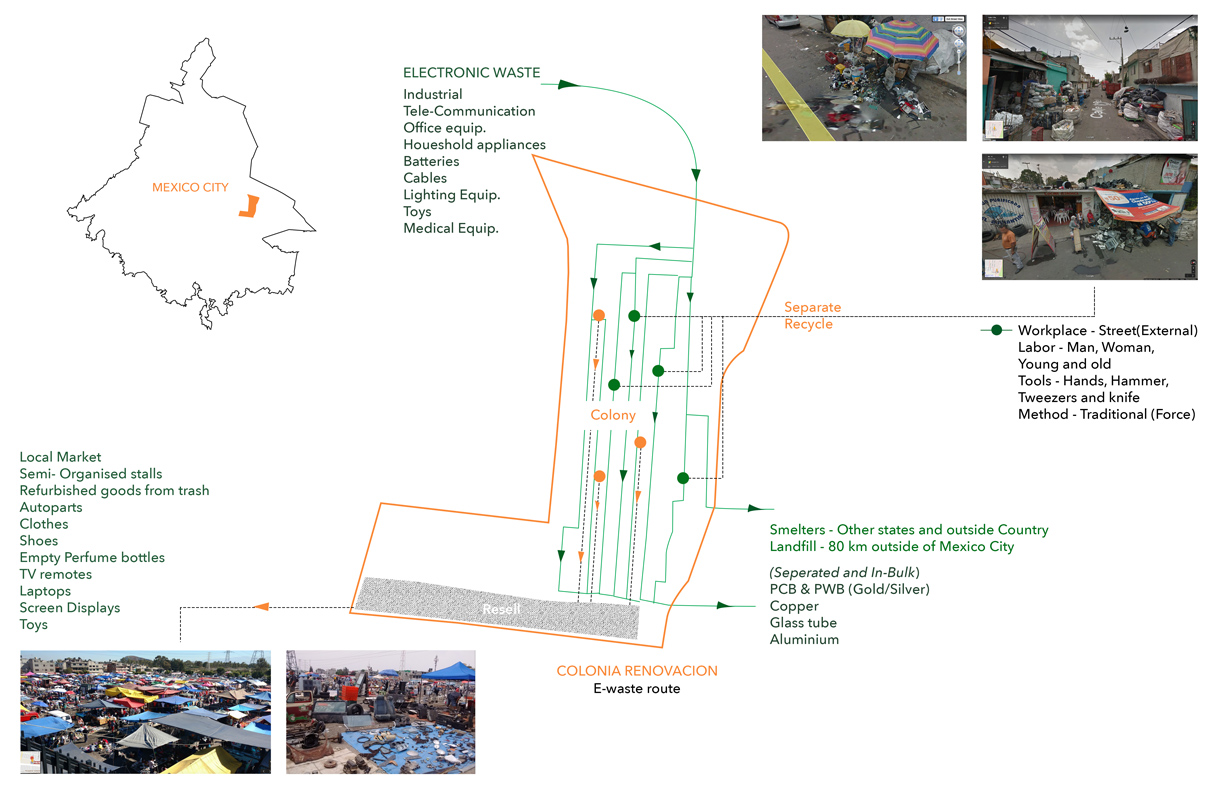
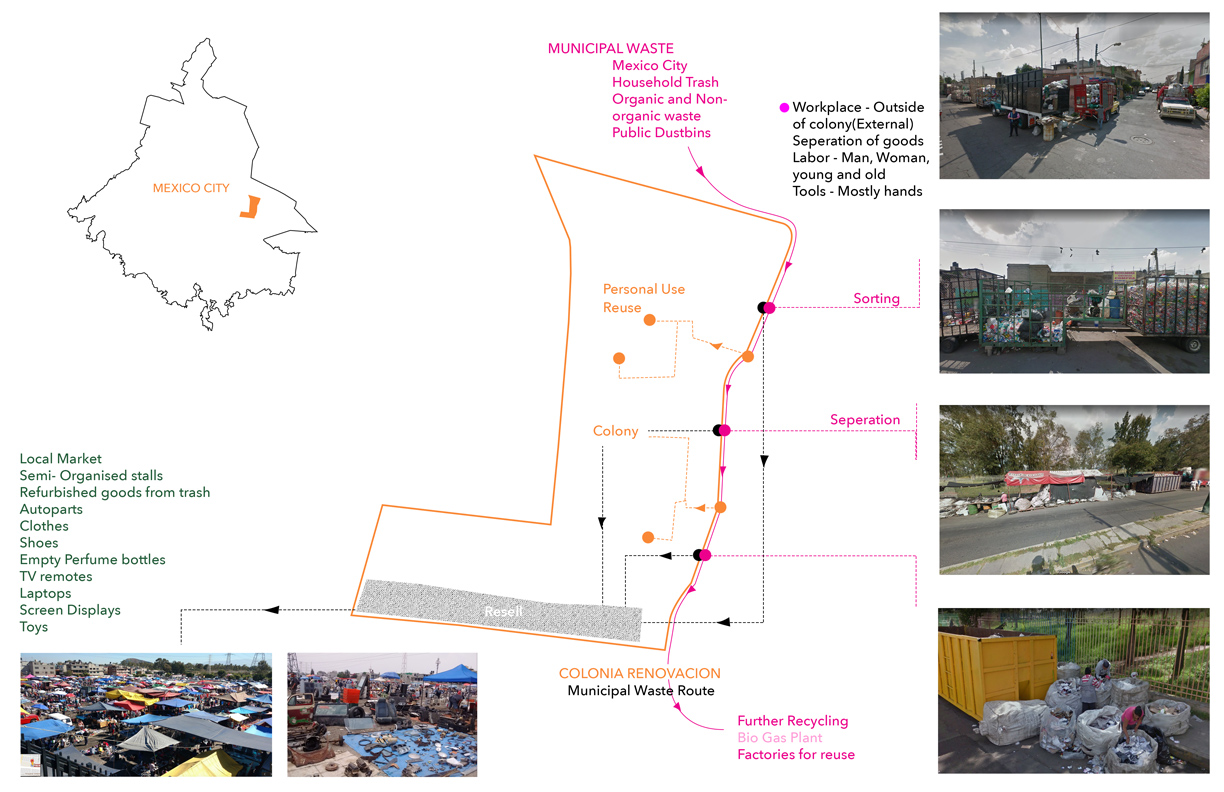
3. Participant Observation
Garbage Truck
Context:
CDMX garbage trucks collects and transports (tertiary economy) the waste from the residential and industrial sectors (secondary economy) and transports to the formal and informal recycling sector (hidden economy) to get recycled into reusable materials (primary economy).
Notes:
These trucks plays a crucial role in bringing livelihood to the people employed in informal waste recycling practice in Colonia renovación, Mexico city.
This is an example of how a part of system meant for the formal purpose gets repurposed to serve the local necessity and becomes the connection of the disdain reality with adjacent world.
CDMX garbage trucks collects and transports (tertiary economy) the waste from the residential and industrial sectors (secondary economy) and transports to the formal and informal recycling sector (hidden economy) to get recycled into reusable materials (primary economy).
Notes:
These trucks plays a crucial role in bringing livelihood to the people employed in informal waste recycling practice in Colonia renovación, Mexico city.
This is an example of how a part of system meant for the formal purpose gets repurposed to serve the local necessity and becomes the connection of the disdain reality with adjacent world.
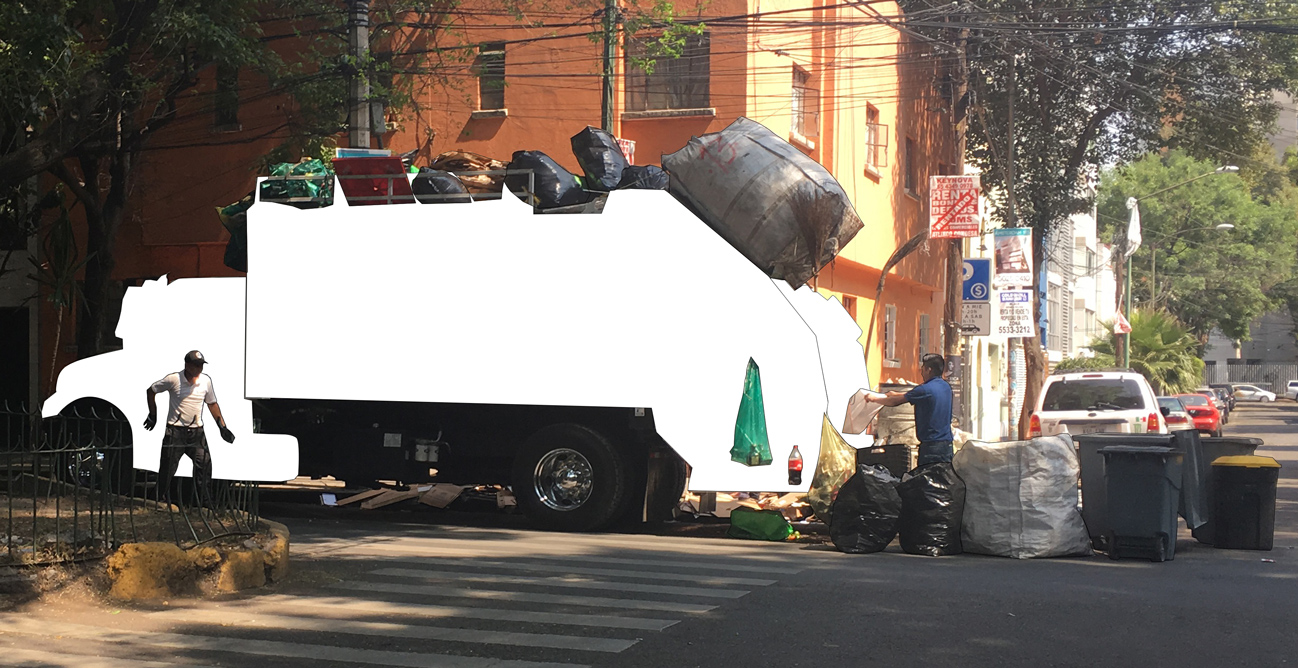
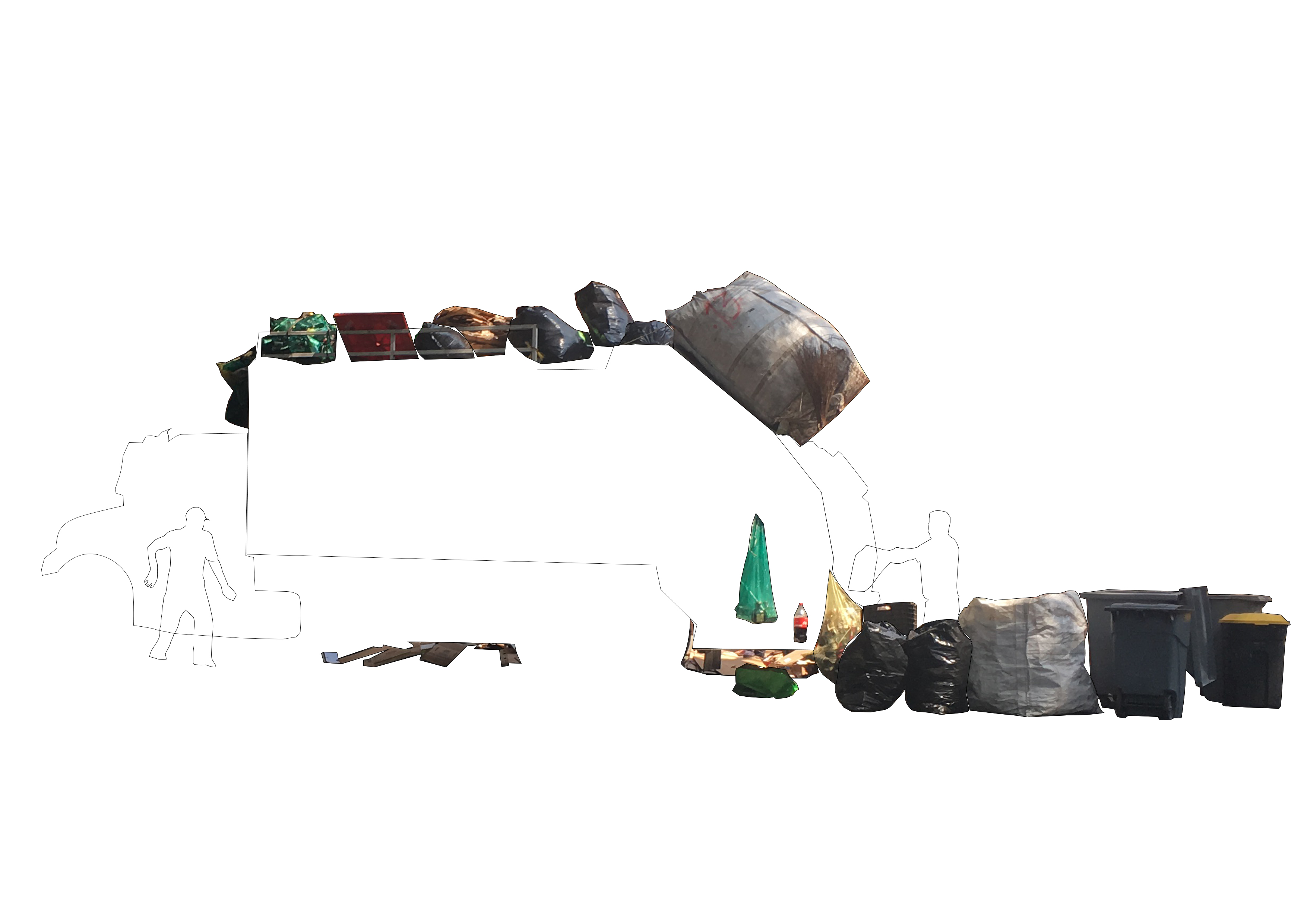

Approach:
Documentation of how collectors work on a daily level and how the design of the truck supports their work.
Documentation and Visual Study
Documentation of how collectors work on a daily level and how the design of the truck supports their work.
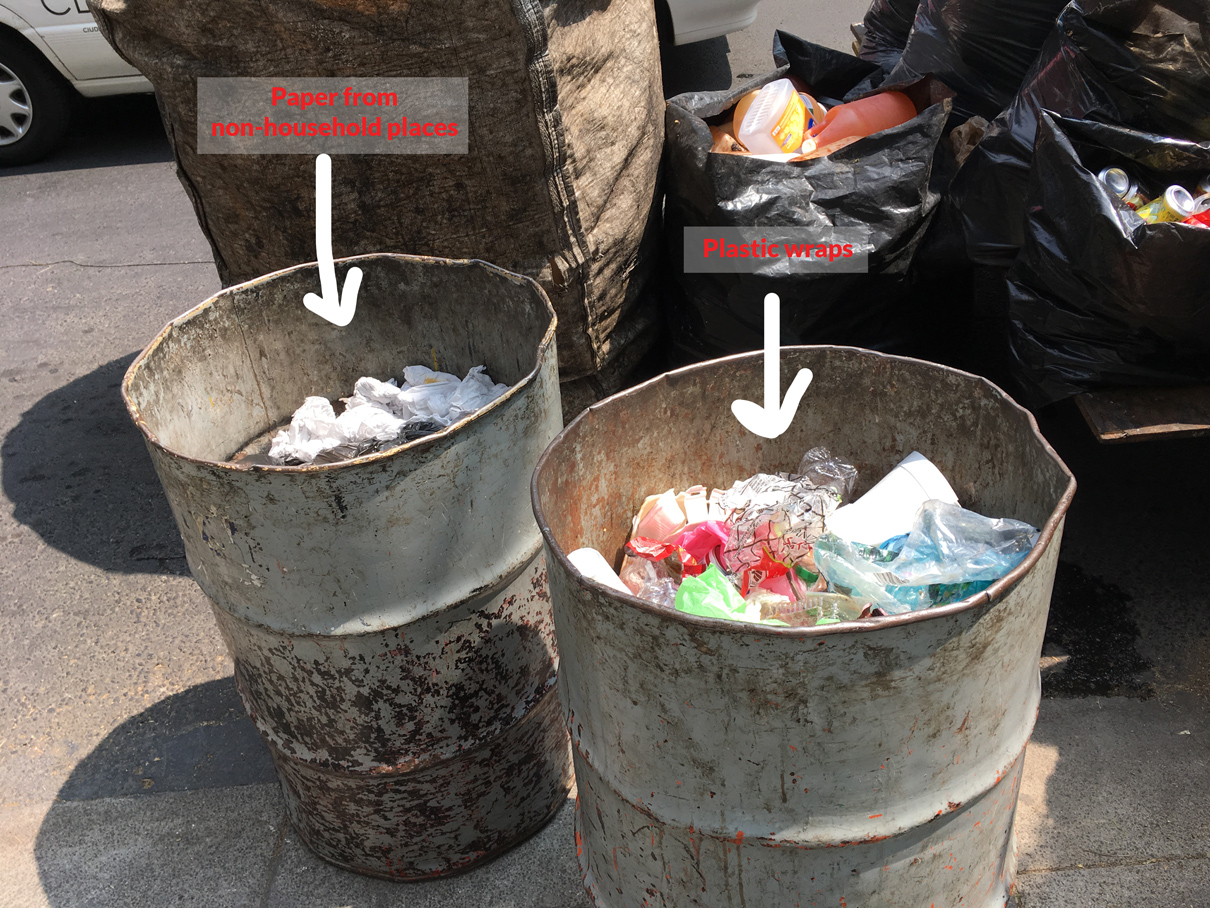
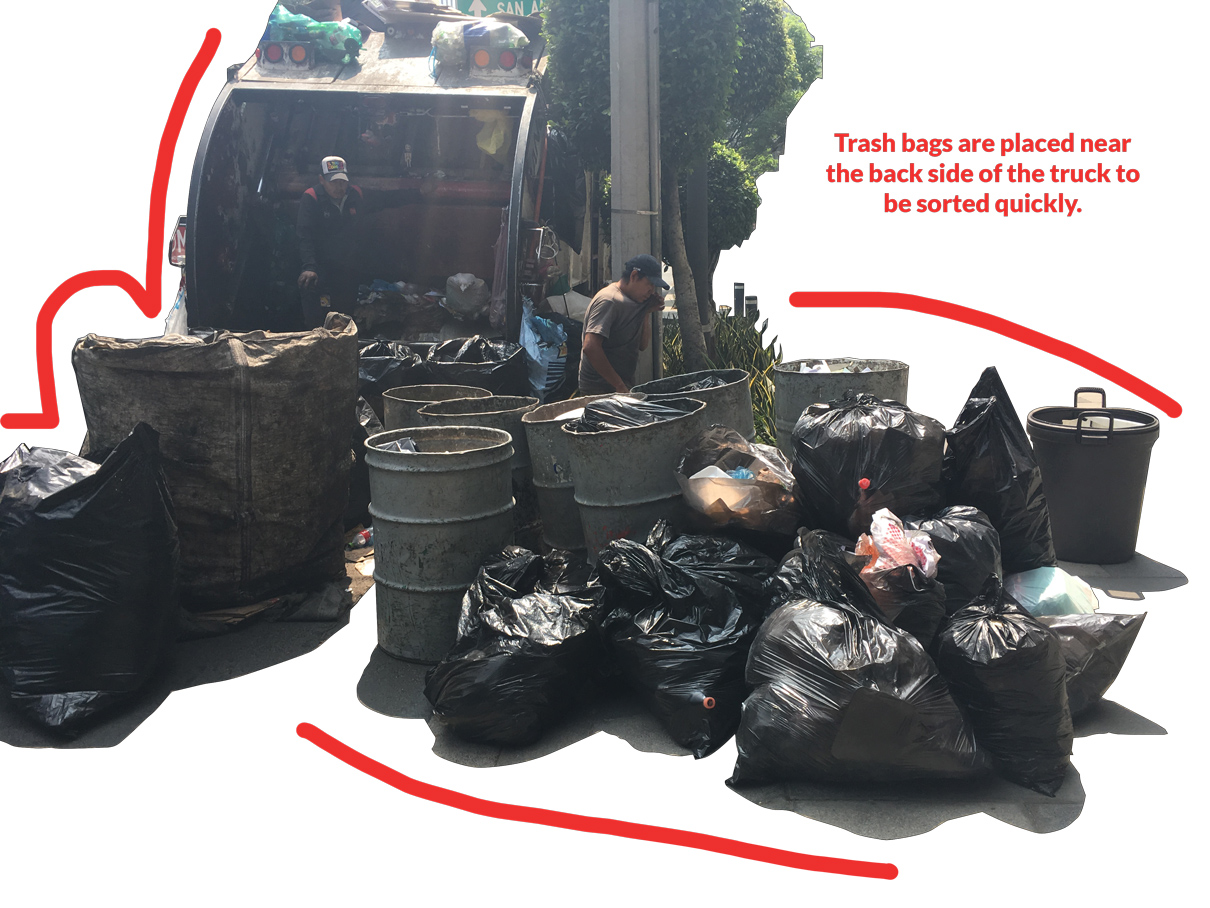
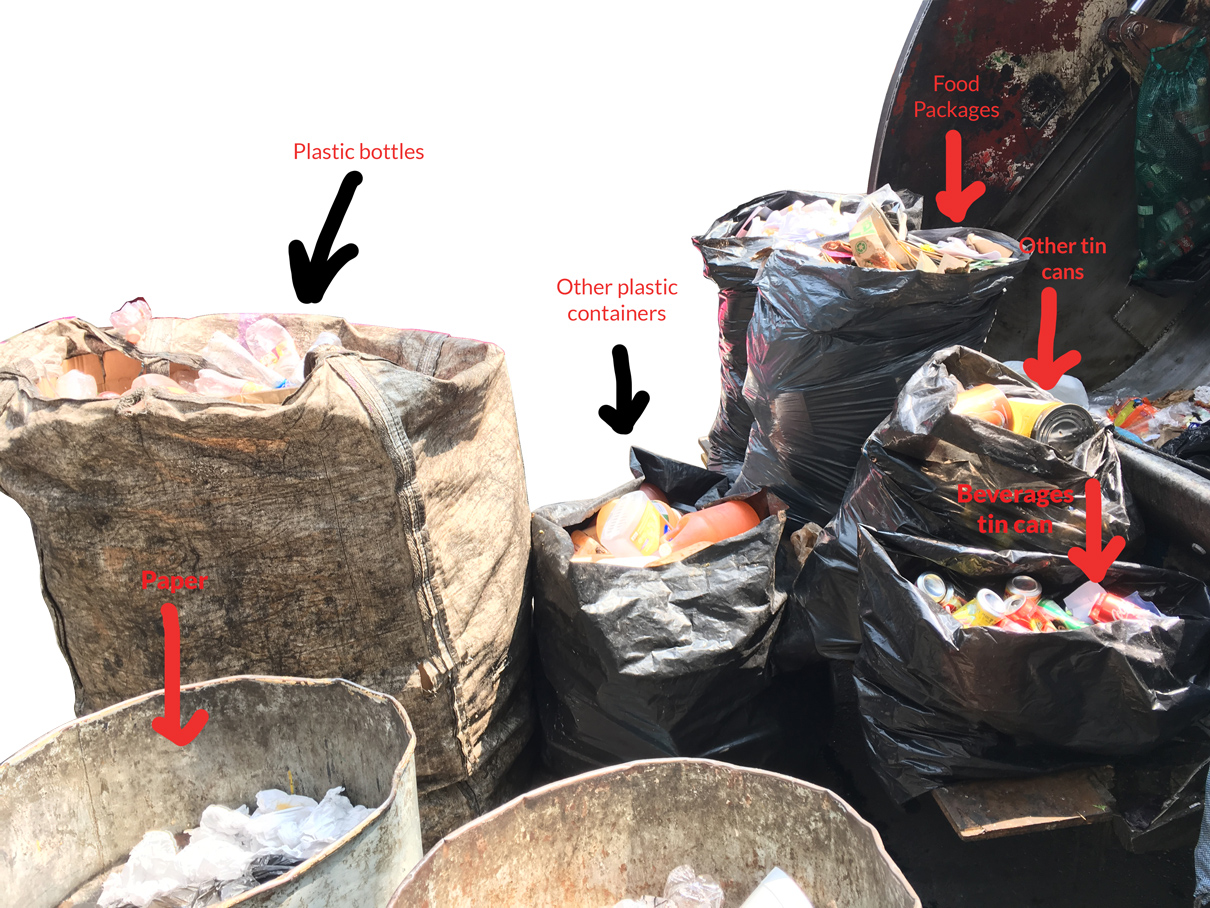
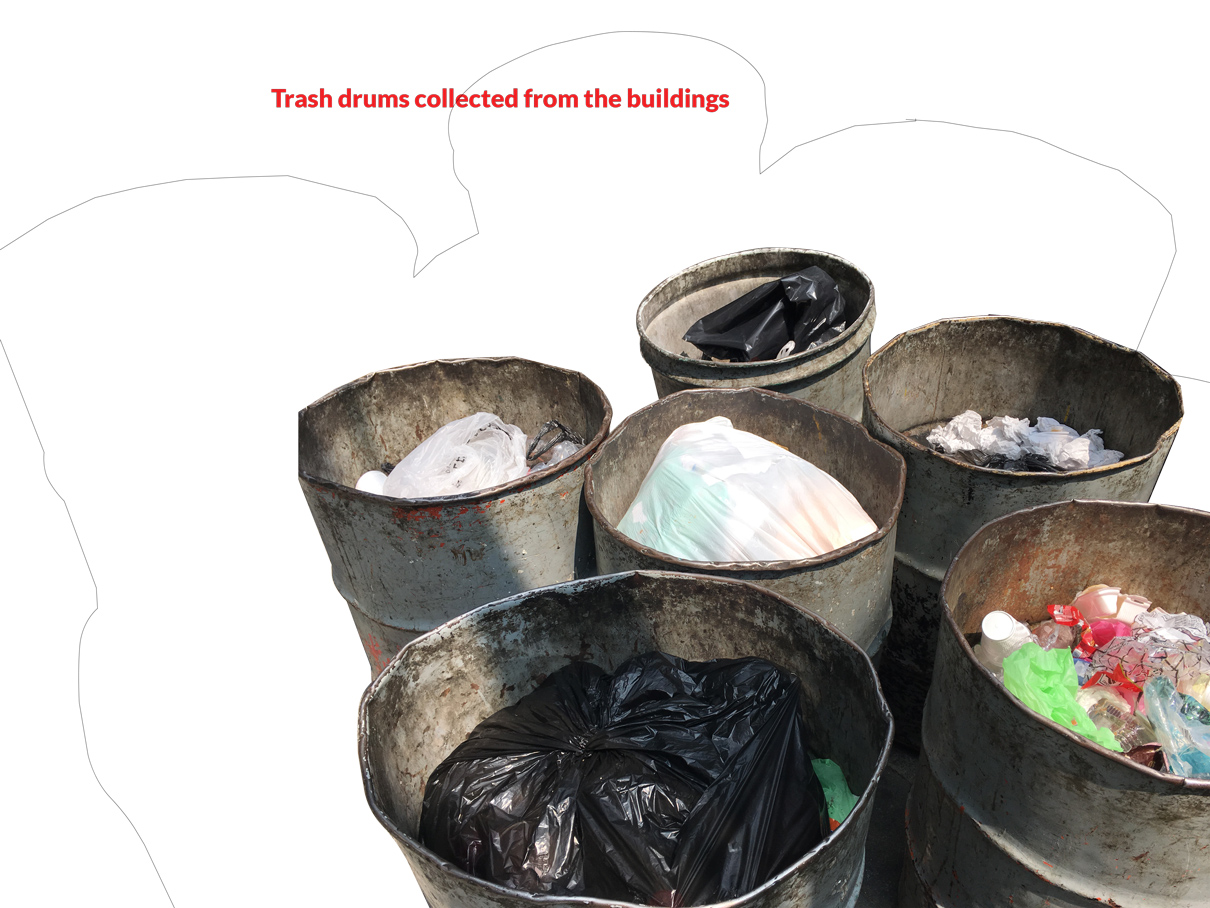
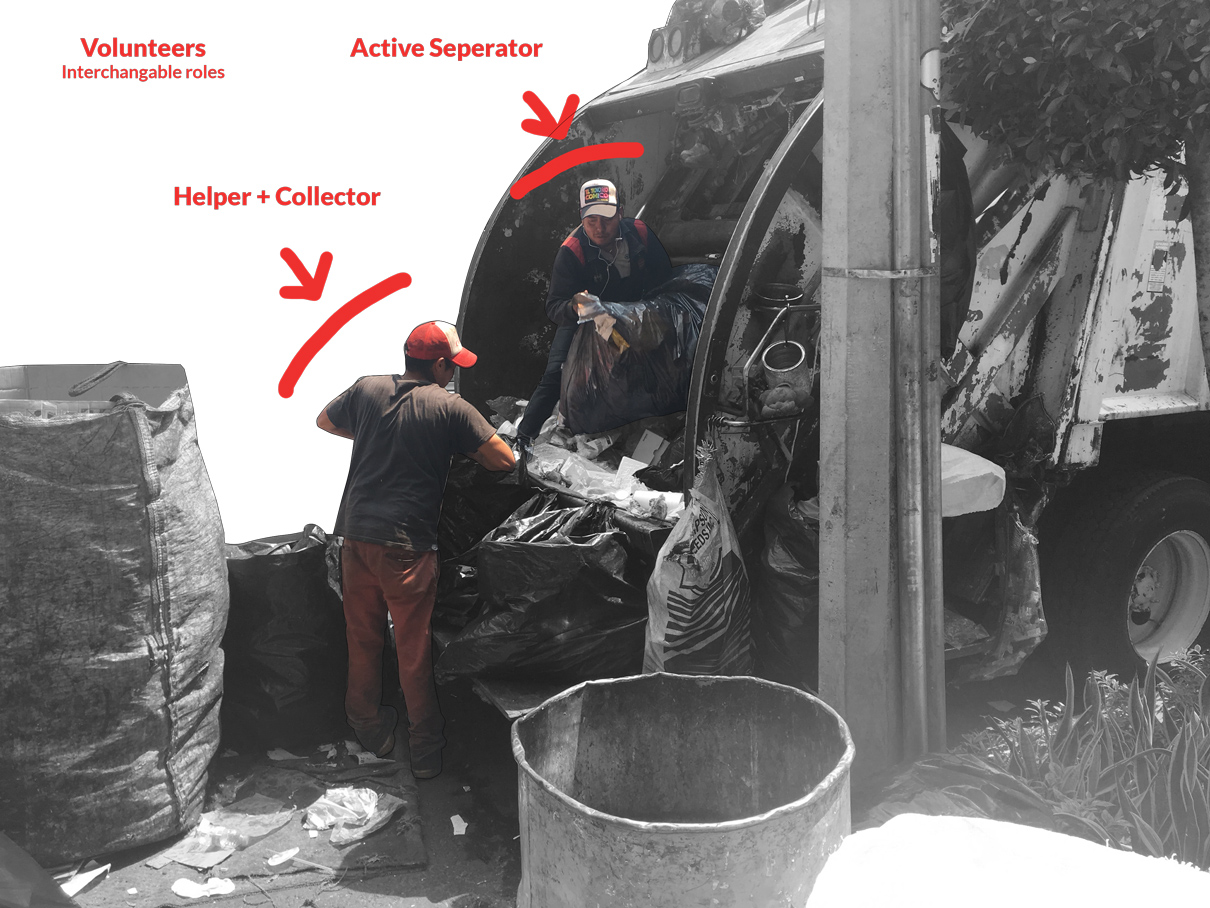

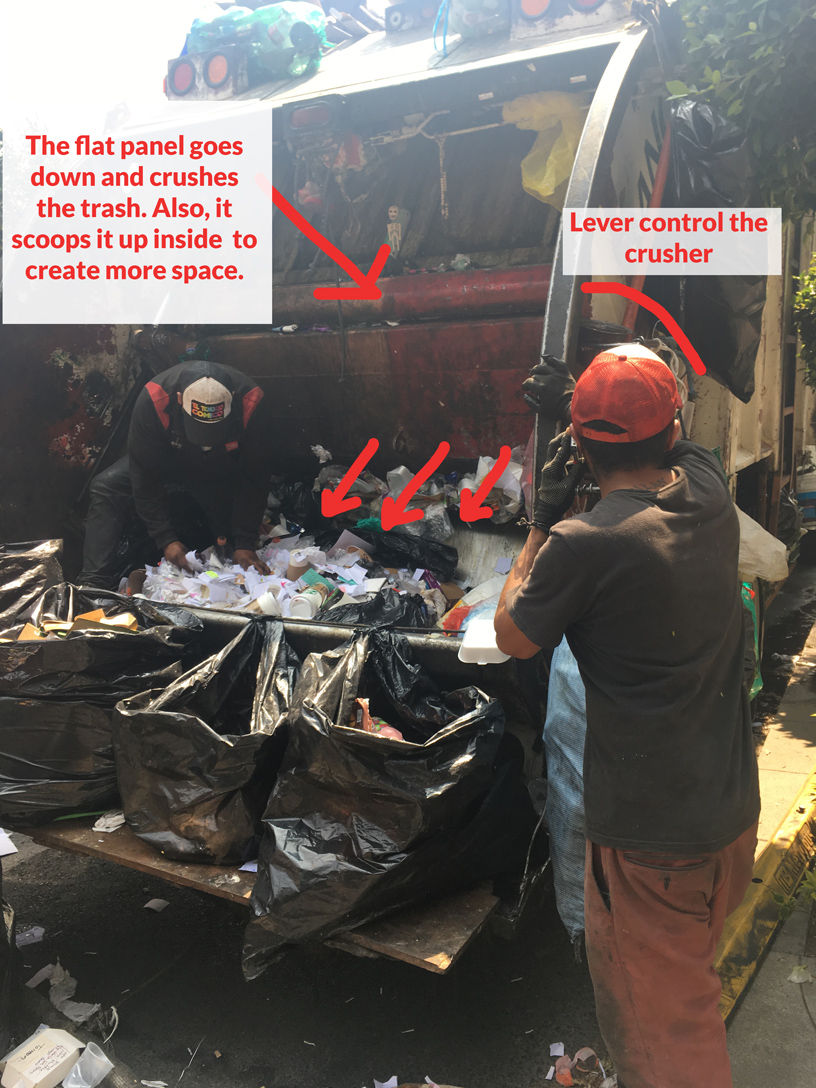
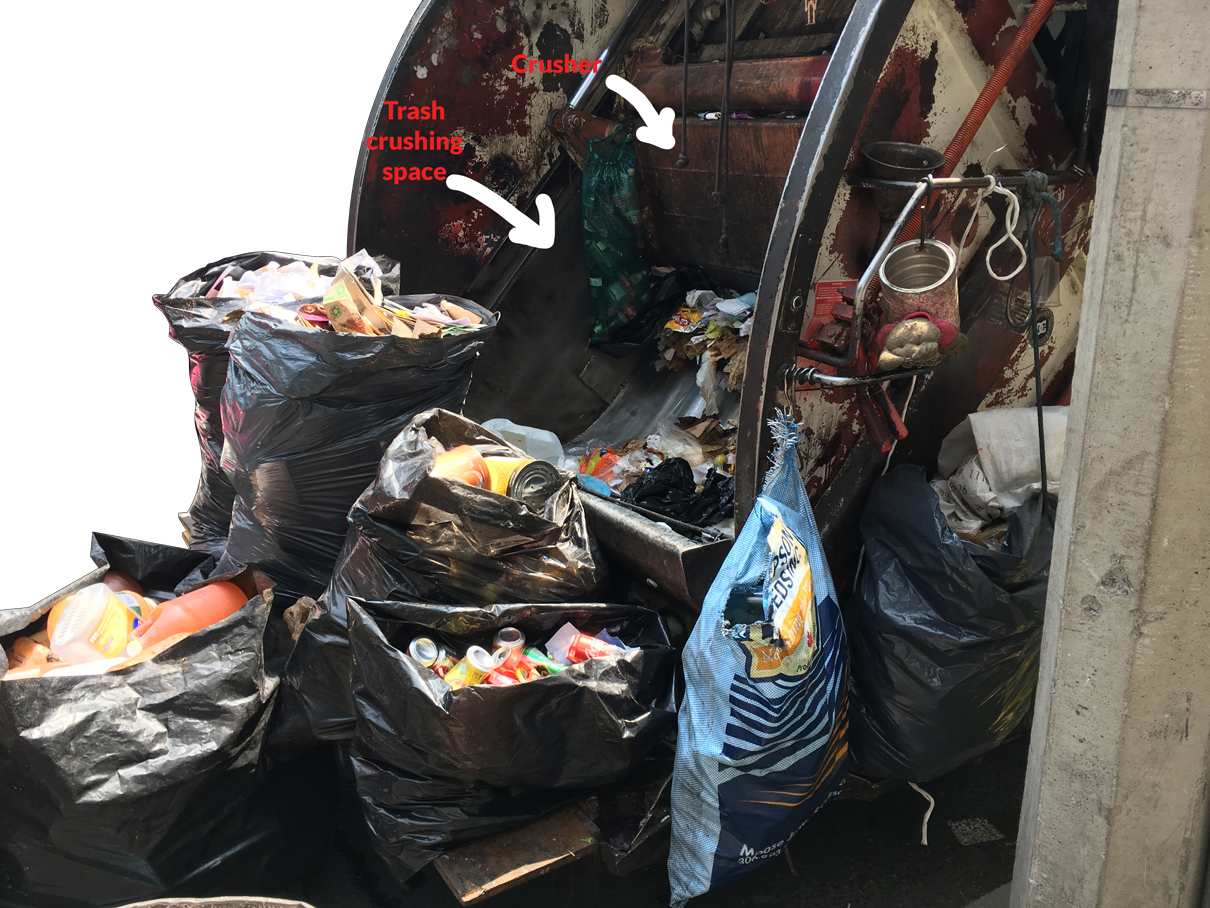
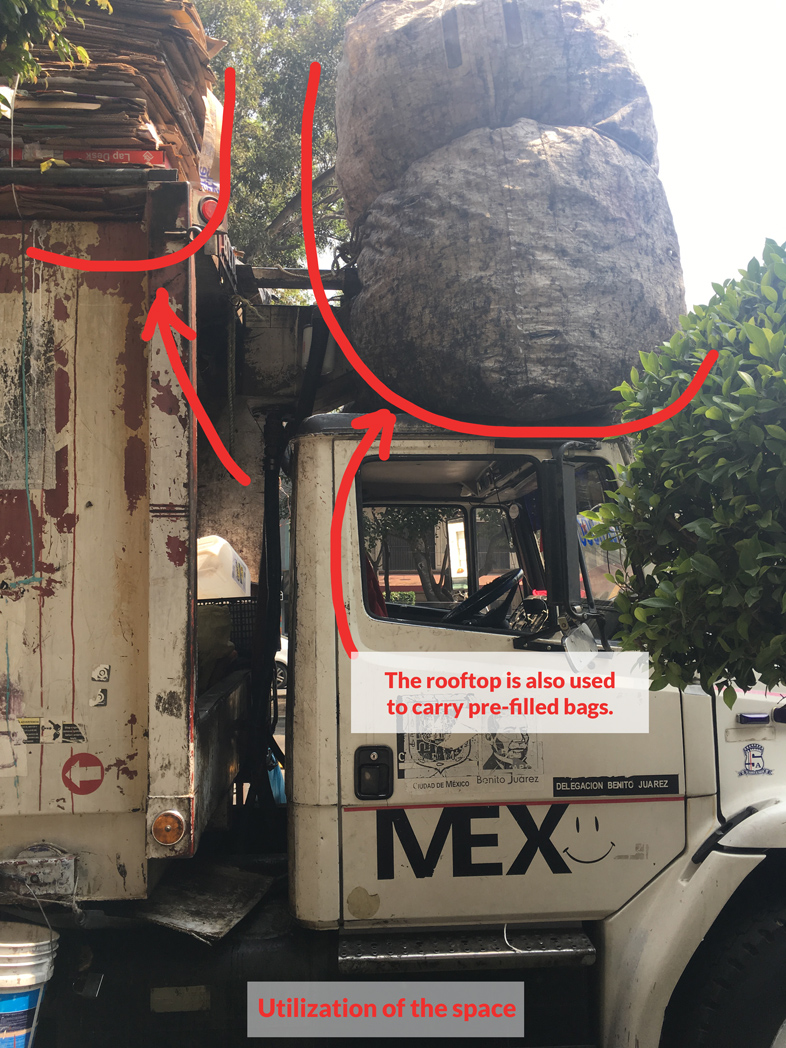

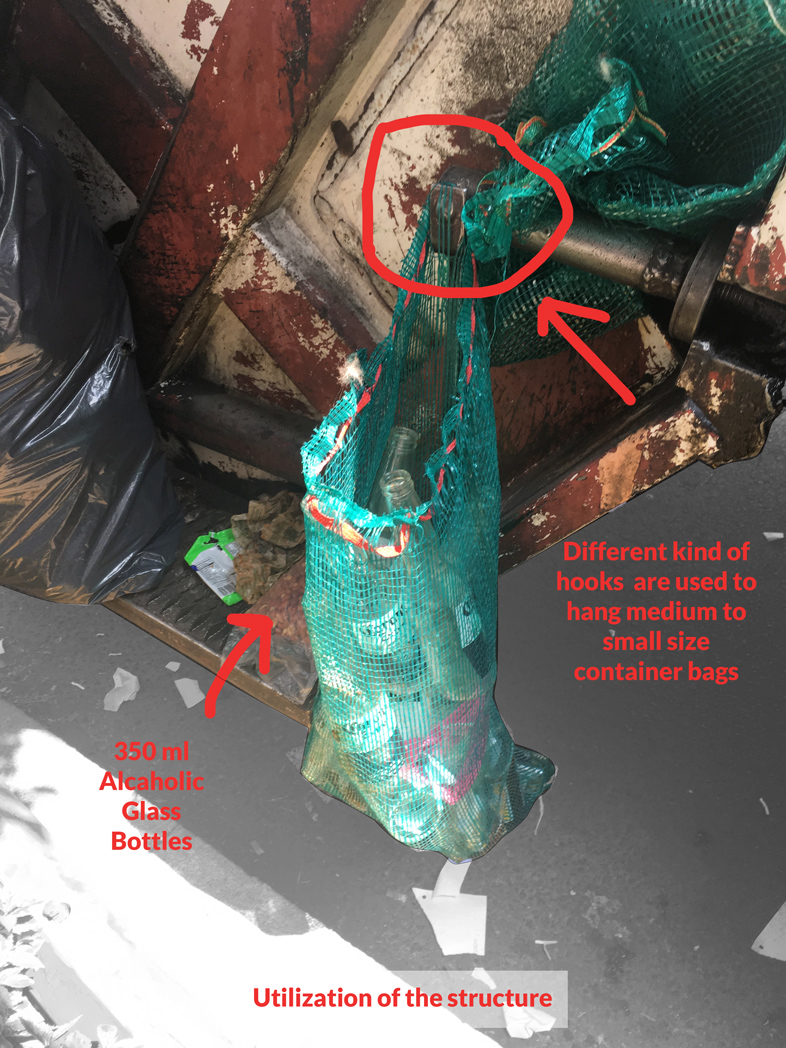
4. Ethnographic
Qualitative Workshop
Approach:
This qualitative workshop was conducted with the family of an electronic waste dismantler working at the informal electronic waste management site Colonia Renovación, Mexico City for 30 years. The motive was to understand their personal perspective, experiences and problems living at a recycling site.
Inspired by the grassroots comics, ‘comics as a communication tool’ as well as a ‘medium for self-expression’ by world comics organisation.
Grassroot Comics
This qualitative workshop was conducted with the family of an electronic waste dismantler working at the informal electronic waste management site Colonia Renovación, Mexico City for 30 years. The motive was to understand their personal perspective, experiences and problems living at a recycling site.
Inspired by the grassroots comics, ‘comics as a communication tool’ as well as a ‘medium for self-expression’ by world comics organisation.

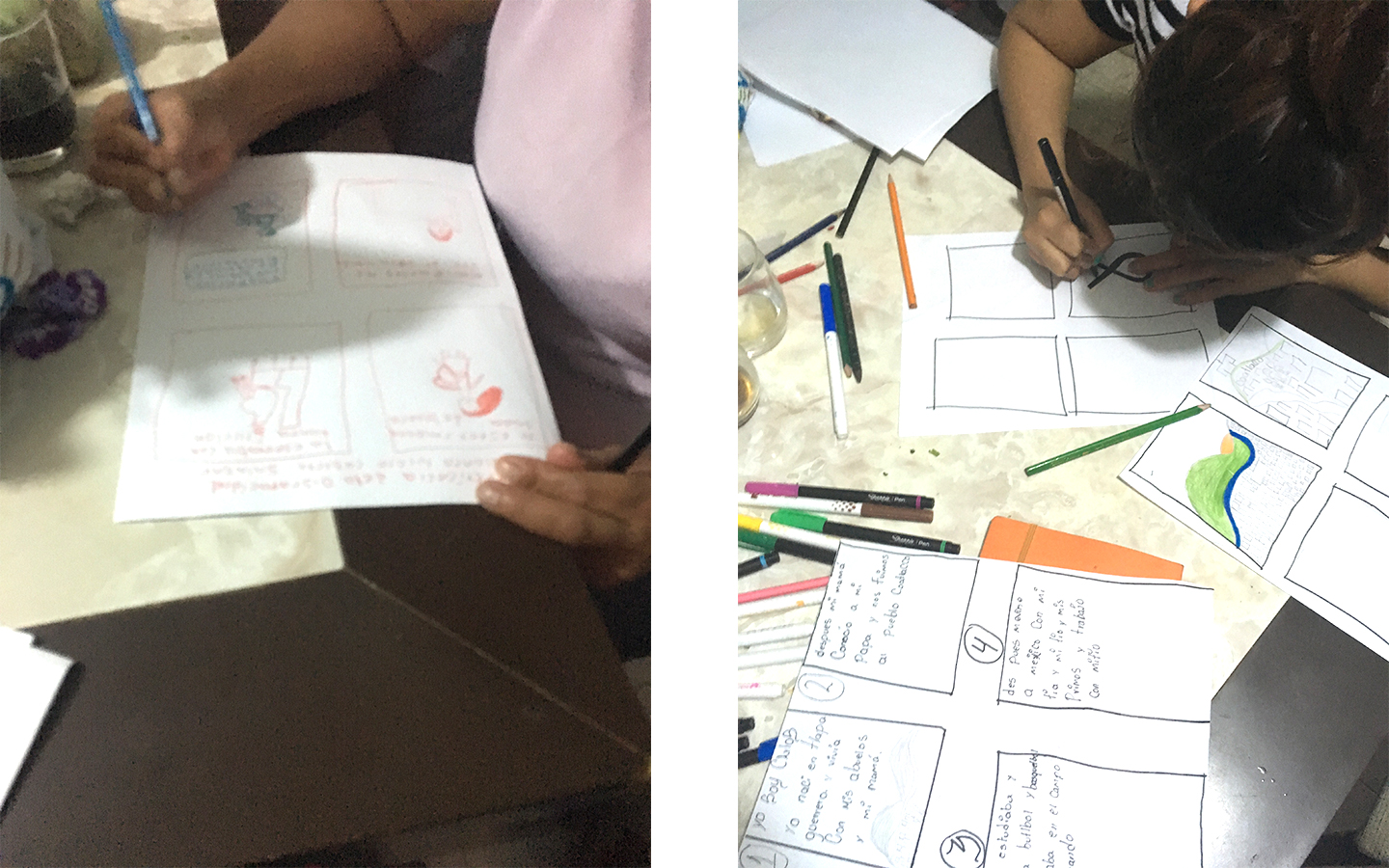
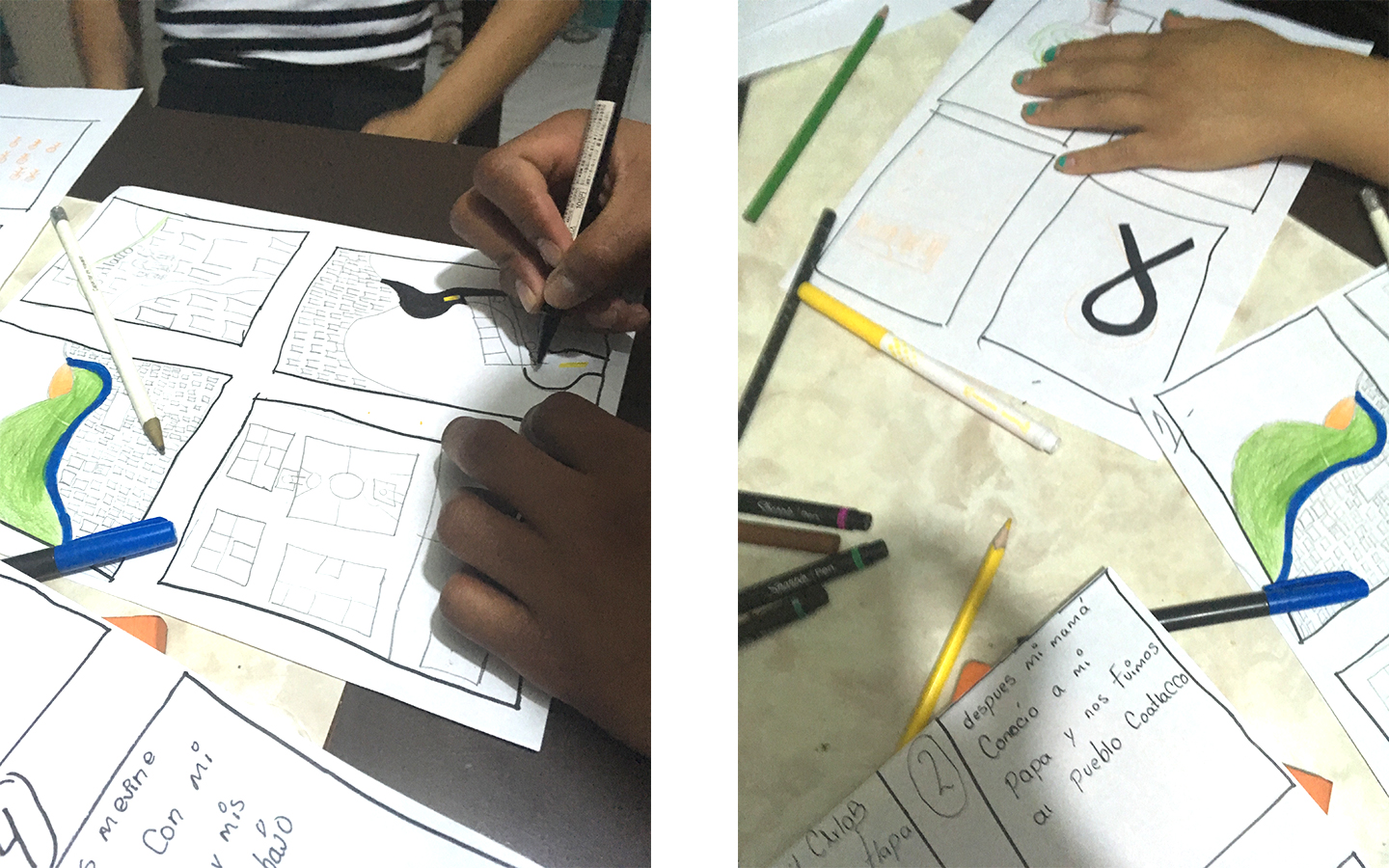
The Father: He shared how he started working in landfill as a young kid, then got involved in gang violence but still working in recycling municipal waste. Later, he started working in medical waste recycling business and now, he is an electronic waste dismantler. He also told that he never been to hospital for an y treatment.
![]()

The Mother: She drew the time when her young daughter
was conceived 1 month earlier before the due date and grew up mentally challenged. And how she wished if she could have afforded better medical facility things would have been fine.
![]()
was conceived 1 month earlier before the due date and grew up mentally challenged. And how she wished if she could have afforded better medical facility things would have been fine.
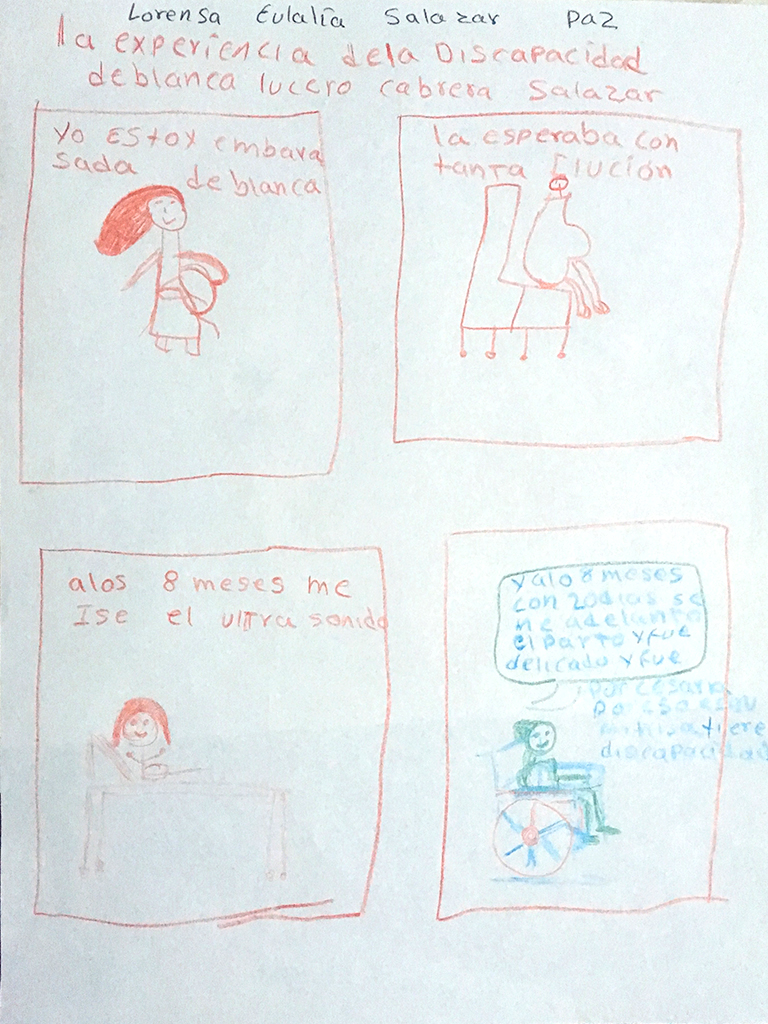
The 12-year-old kid son: The young kid traveled from Guerrero, Mexico to Colonia Renovación, CDMX in the search of work and was learning electronic waste recycling under the guidance of his uncle. He loves playing basketball and remembers the beautiful scenery of sunset when he was in the bus leaving
his hometown.![]()
his hometown.
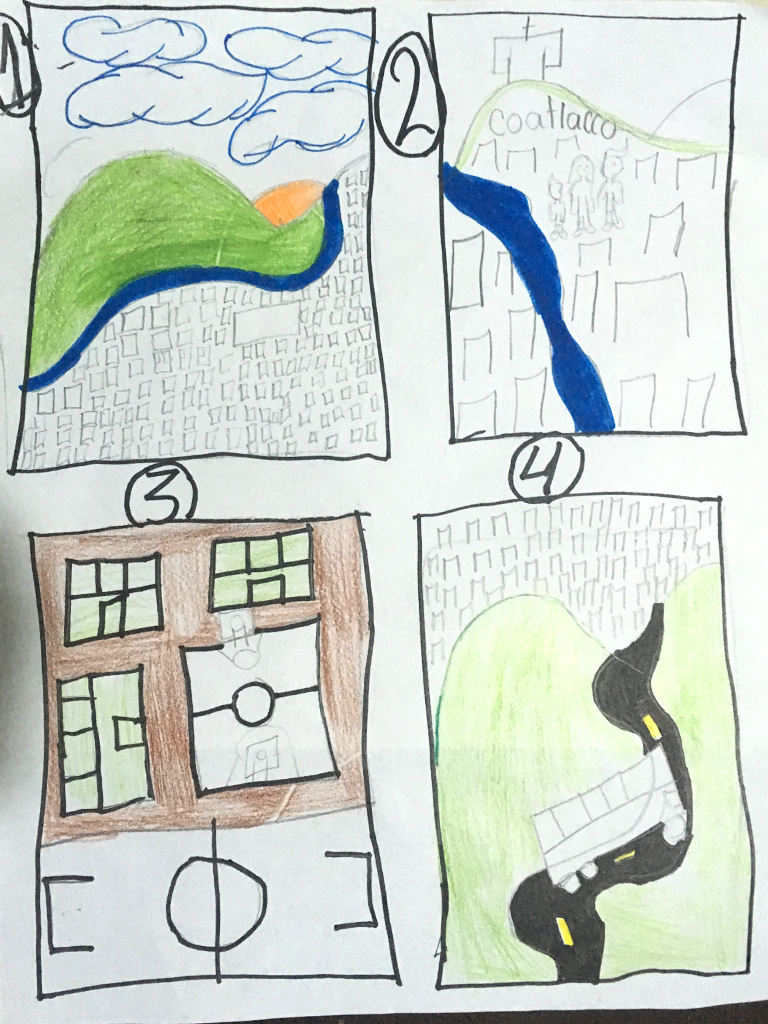
Learnings:
This exercise showed evidence against the presumptions of an outsider(researcher) that the family will definitely share their concerns about working with toxic waste but turns out it was not their main worry at all. The income from the waste business was running their home and putting food on the table. They were grateful for it
Note:
This shows why the field engagement is a crucial part of design practice. The industrialists solution to build better recycling facility and expensive machinery to recycle electronics will take away the jobs of millions of people employed in informal recycling.
Note:
This shows why the field engagement is a crucial part of design practice. The industrialists solution to build better recycling facility and expensive machinery to recycle electronics will take away the jobs of millions of people employed in informal recycling.
5. Particpatory
Artefacte
Challenge:
How to narrate the work of an electronic-waste recycling worker by capturing the essense of their workspace without using any recording media and keeping their identity anonymous?
Approach:
Blanco Camisas (White T-shirts) are t-shirts worn by electronic recyclers working in Colonia Renovación, Mexico City for a day.
As a design research tool, these t-shirts capture the exposure of a dismantler from their work residue. These narrates the day-long dismantling labour via dirty prints, acid drops, ink and food stains.
Also, they acts as the canvas with an open interpretation showing the impressions printed via the unintentional finger prints on the shirt imprinted via actions taken by a dismantler while dismantling electronic devices.
The upper body clothing item is the representation of the world of informal electronic-waste recycling. They merely capture the personality, thoughts, body actions, movement, physical strain and smell of the body of a dismantler.
Blanco Camisas
Blanco Camisas (White T-shirts) are t-shirts worn by electronic recyclers working in Colonia Renovación, Mexico City for a day.
As a design research tool, these t-shirts capture the exposure of a dismantler from their work residue. These narrates the day-long dismantling labour via dirty prints, acid drops, ink and food stains.
Also, they acts as the canvas with an open interpretation showing the impressions printed via the unintentional finger prints on the shirt imprinted via actions taken by a dismantler while dismantling electronic devices.
The upper body clothing item is the representation of the world of informal electronic-waste recycling. They merely capture the personality, thoughts, body actions, movement, physical strain and smell of the body of a dismantler.
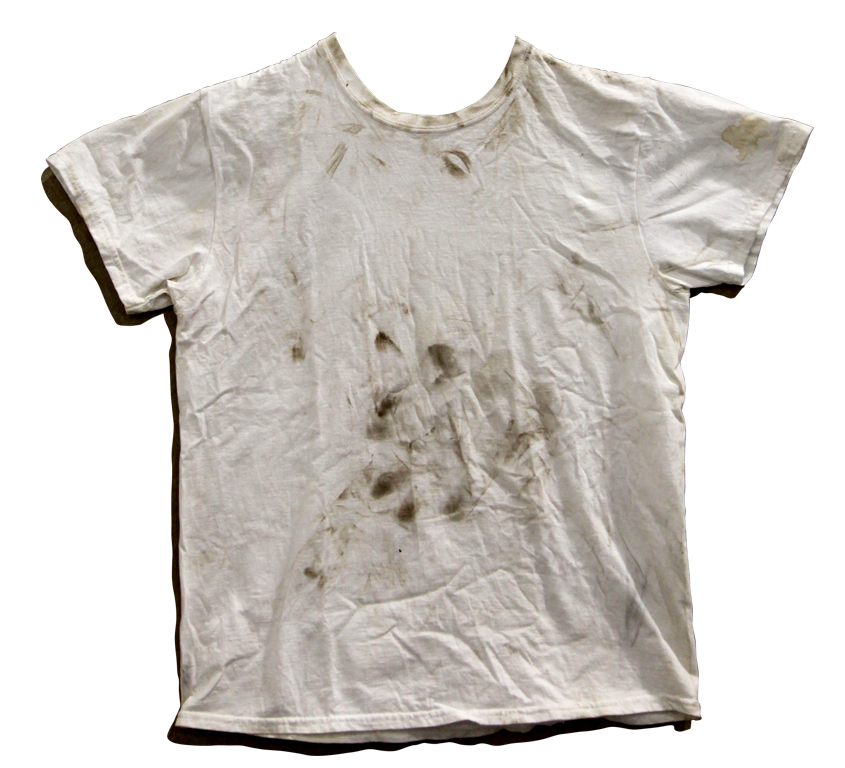
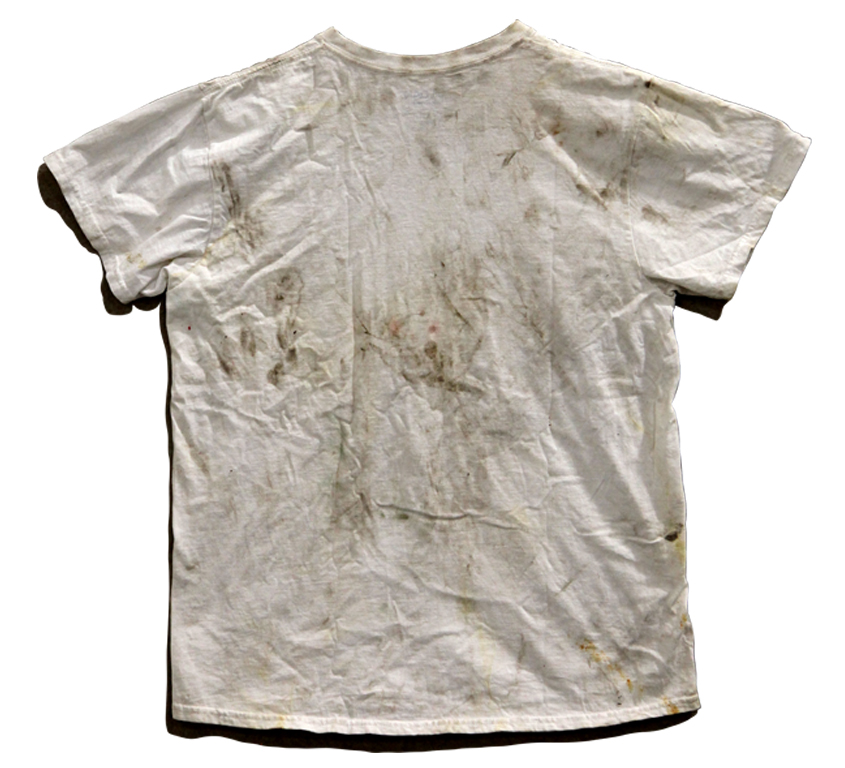
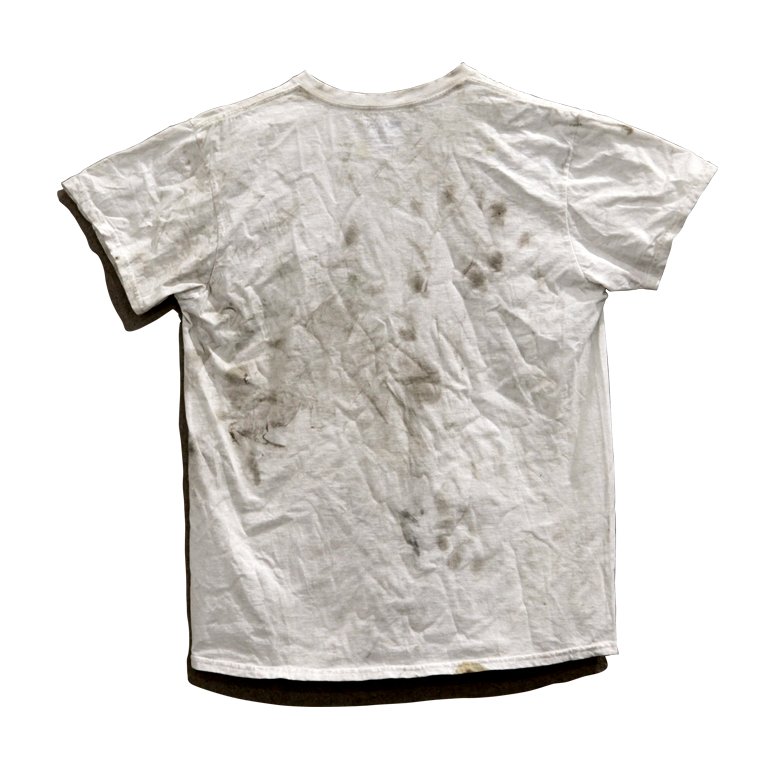
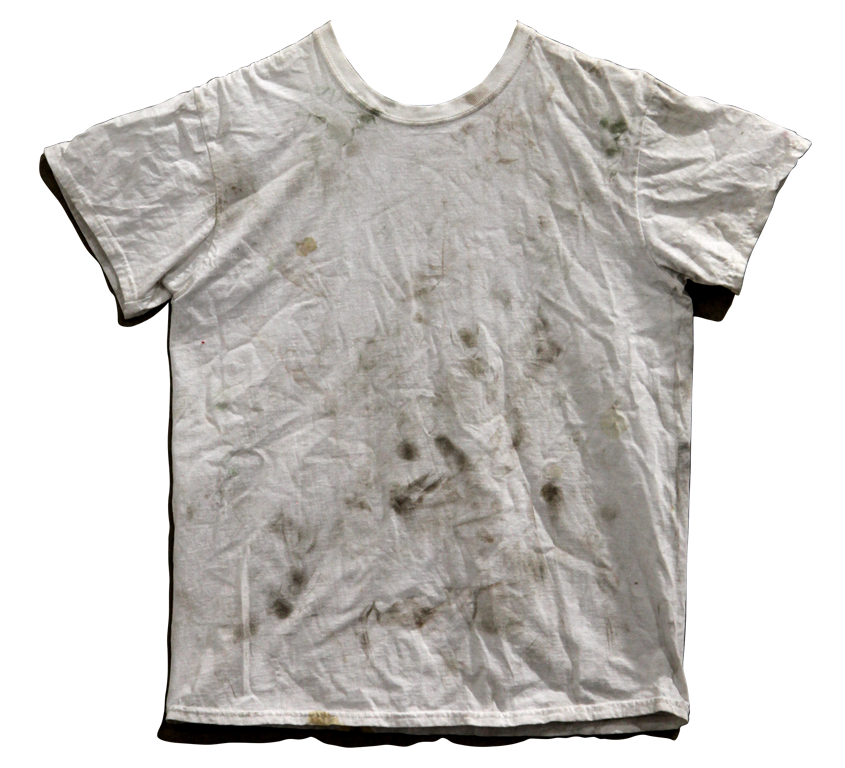
END
︎
︎